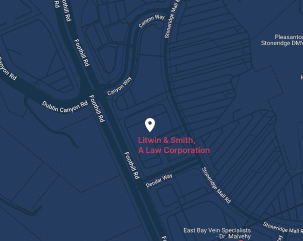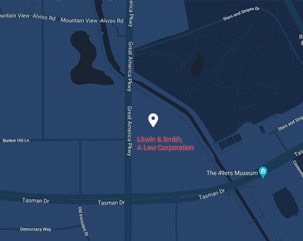The two most well-known results of H1B applications are simple: approvals and denials. However, there’s a third possible response your H1B application may receive. In some instances, you may receive a “Request for Evidence” from USCIS. This is neither an approval nor a denial; it’s a sign that your application wasn’t complete.
If you’ve received a Request for Evidence, don’t panic. Your H1B application still has a solid chance of approval. Here’s what you need to know about H1B Requests for Evidence, what they mean, and how to respond to them. Hopefully, you will also learn how to avoid them in the future.
What Is an H1B Request for Evidence (RFE)?
An H1B Request for Evidence (RFE) is a request sent by U.S. Citizenship and Immigration Services (USCIS) when an H1B application doesn’t contain the evidence necessary to approve it. An H1B RFE signifies that an H1B application did not include the correct documentation or that the documents provided were incomplete.
An RFE is not a rejection. H1B applications are rejected when USCIS reviews the documentation and confirms that the petitioner or recipient is ineligible for an H1B visa. RFEs are issued when the documentation is not enough to decide either way.
While RFEs are not rejections, failing to respond to them appropriately will undoubtedly lead to a denial by USCIS. Until you respond to the RFE entirely and accurately, it is considered an incomplete application and ineligible for entry into the visa lottery. That’s why it’s vital to react to RFEs correctly and resolve the issues they raise.
Reasons for H1B RFEs
Many potential issues can lead to an H1B RFE. These issues are primarily caused by incomplete documentation or a failure to support claims made in the application. The USCIS issued a report naming the most common reasons applicants receive, and the top nine problems include:
- Specialty Occupation: The application didn’t correctly prove that the role involved was an appropriate specialty occupation.
- Employer-Employee Relationship: The application didn’t demonstrate a valid employment relationship with the candidate.
- Availability of Work: The application didn’t demonstrate that they had either in-house or off-site work for the candidate for the length of the visa period.
- Beneficiary Qualifications: The application didn’t support that the recipient is qualified to perform the specialty occupation for which they are hired.
- Maintenance of Status: The application didn’t support that the recipient properly maintains their nonimmigrant status.
- LCA Corresponds to Petition: Either the applicant didn’t obtain a proper Labor Condition Application (LCA), or the LCA didn’t cover the offered position.
- AC21 and Six-Year Limit: If an H1B candidate has reached the six-year limit, they must prove their eligibility for AC21 benefits or an extension.
- Itinerary: The application required the recipient to perform tasks in multiple locations and did not include the dates and places in a proper itinerary form.
- Fees: The application fees were not correctly established as paid on time.
The consistent trend across these issues is that the application was not thorough enough. If you receive an RFE, you can still have your H1B application approved as long as you respond accurately and on time.
What to Do About an H1B RFE
You still have options if you have already received an H1B RFE. An RFE is better than a denial. With care, you can still have a successful H1B application process despite receiving an RFE.
- Make sure to answer all questions in full. The USCIS will only issue one RFE. Your application will be rejected if you miss elements or fail to answer the RFE’s concerns in full. Read the RFE carefully to make sure you understand what you need to provide and how you need to respond.
- Pay attention to detail. Since there is only one opportunity to respond to an RFE, you must do so carefully. Make sure you understand all deadlines, due dates, and other details. For instance, check carefully to find which USCIS office you must send the RFE to. Sending it to the wrong one is likely to delay the process to the point that deadlines pass and your application is denied.
- Work closely with legal experts. If you’ve already received an RFE, it’s clear that you did not provide appropriate information in your application. Get help from an experienced immigration attorney to ensure your response to the RFE doesn’t include similar errors.
Still, this work can be avoided. The best-case scenario is to submit a correct and thorough application in the first place, so there’s no need for an RFE at all.
How to Avoid H1B RFEs
Avoiding RFEs is always the simpler solution. Applications that are complete and thorough are more likely to be approved, while those that contain errors that may lead to an RFE are at much greater risk of denials or missed deadlines. To avoid RFEs, you can take a few simple steps:
Establish a Clear and Direct Job Offer
Whenever possible, you should provide complete legal documentation with your H1B application. This means writing up an official, legally binding job offer to demonstrate that you’re establishing an employer-employee relationship. This contract can also help you confirm the availability of work and the specialty occupation requirements.
Demonstrate Qualifications
Similarly, your candidate must be able to showcase their qualifications, particularly their education or experience that’s equivalent to a bachelor’s degree or higher. Transcripts are ideal, but portfolios can also work for specific fields.
Work with an Experienced H1B Immigration Attorney
The best way to keep your H1B application running smoothly and avoid RFEs is to get help from an experienced immigration attorney. Qualified immigration lawyers understand exactly what documents you need to include in your applications. They will help you ensure that your application is completed and all tasks accomplished, so there’s no need for USCIS to request any additional evidence.
Work with Experts at Litwin & Smith, A Law Corporation, to Answer and Avoid H1B RFEs
RFEs aren’t the end of the application process. With the right help, you can respond to an H1B RFE and keep your visa application on track. The expert immigration attorneys at Litwin & Smith, A Law Corporation, are prepared to help you respond to RFEs in a timely and accurate manner and avoid RFEs in your future applications. Schedule your consultation today to learn more.

